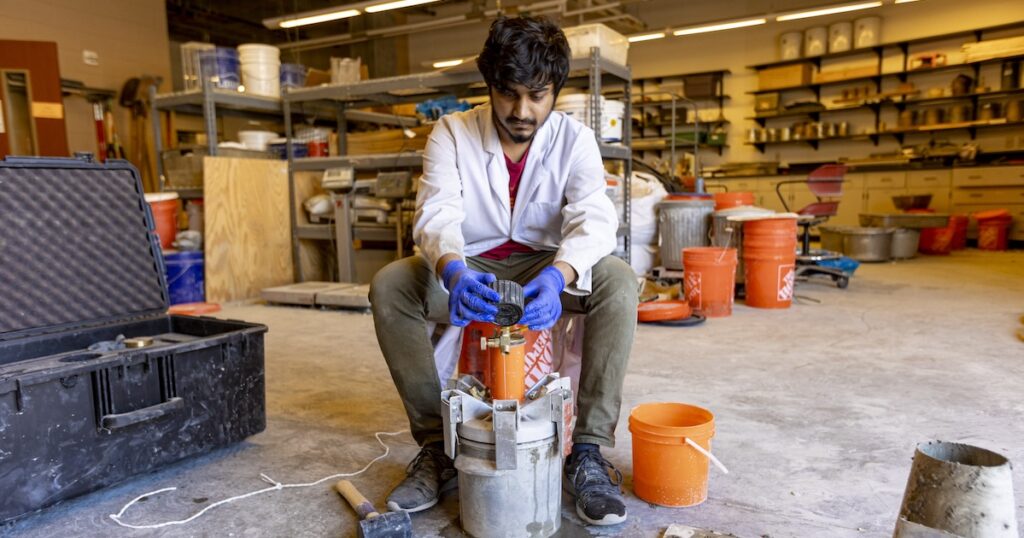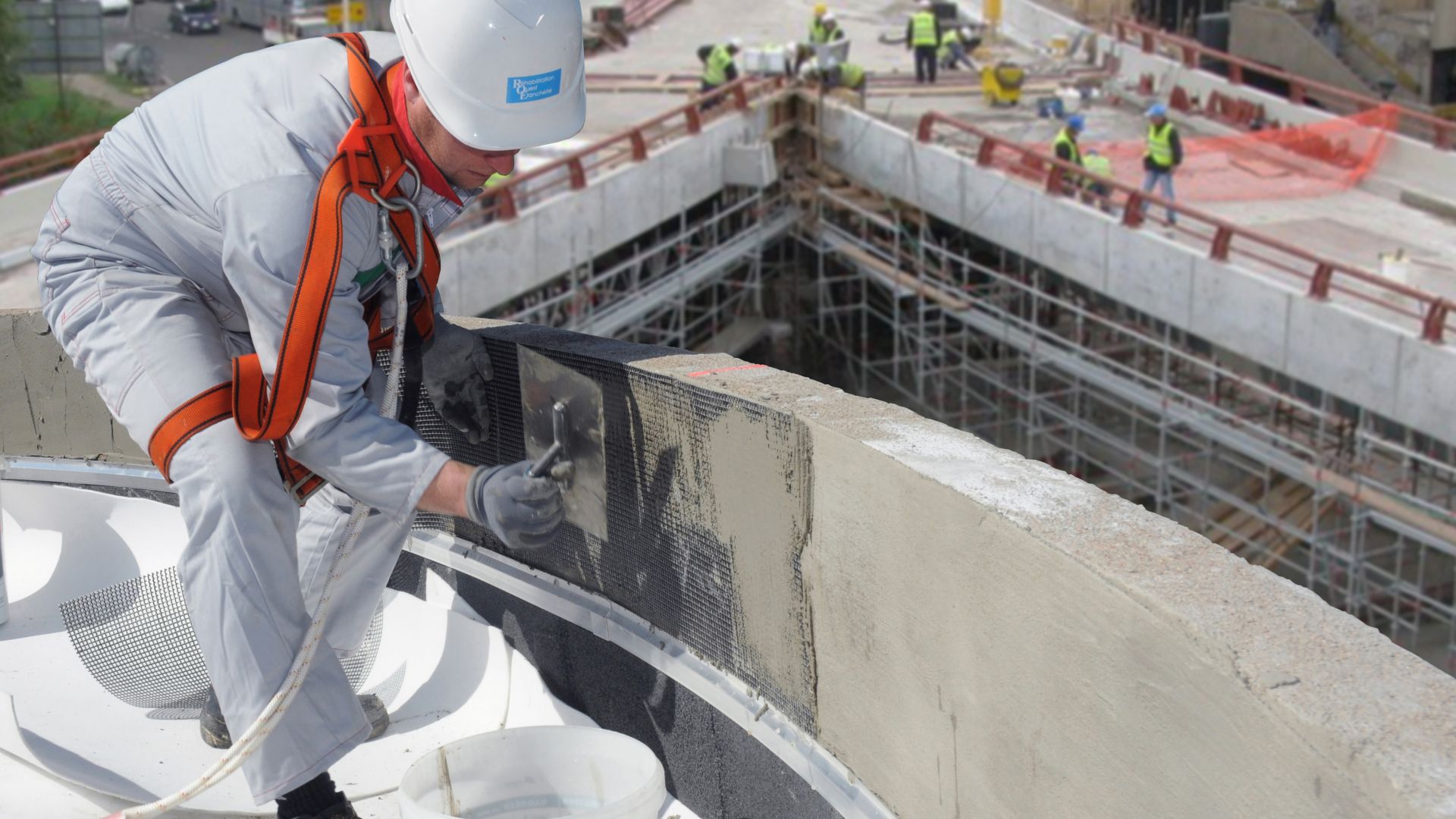Recognizing the Numerous Applications of General Engineering Concrete in Diverse Industries
When you think about the many means basic engineering concrete effects numerous sectors, you'll find its applications are both wide and critical. From offering tough structures for transport networks to supporting cutting-edge power services, this product plays a crucial role in shaping our facilities. Yet what concerning its influence on metropolitan development and environmental design? Exploring these facets can disclose a lot more than you could expect.
The Duty of Concrete in Building And Construction and Structure Projects
Concrete plays a crucial role in building and construction and structure projects, composing around 70% of all materials made use of in contemporary frameworks. You'll find it in foundations, wall surfaces, and floorings, supplying strength and sturdiness. When you pick concrete, you're deciding for a material that can stand up to weather, resist fire, and support heavy tons. Its versatility allows for numerous applications, from residential homes to towering skyscrapers.Mixing concrete with ingredients can enhance its buildings, improving workability and establishing times. You can also mold and mildew it right into various forms, enabling creativity in style. As you work on your projects, think about the environmental benefits of utilizing concrete, such as its ability to decrease power usage in buildings. Overall, concrete's integrity and adaptability make it a keystone of the building industry, ensuring that structures are not just functional however also safe and lasting.
Infrastructure Development: Roadways, Bridges, and Tunnels
When it involves facilities growth, roadways, bridges, and tunnels are essential components that link neighborhoods and help with transport. You count on these structures daily, whether you're commuting to function or taking a trip lengthy ranges. General design concrete plays an essential role in their building and durability. Its stamina and flexibility allow engineers to make durable highways that stand up to hefty web traffic and rough climate conditions.Bridges, frequently extending rivers and valleys, require specially developed concrete to guarantee safety and longevity. Making use of strengthened concrete in tunnel building not only supports significant weight yet likewise boosts resistance versus water seepage and ground motion.

Concrete in Transportation: Enhancing Mobility and Security
As you browse with busy cities and rural roads, the function of concrete in transport comes to be evident, greatly boosting both mobility and safety and security. Concrete's longevity guarantees that roadways, runways, and bridges withstand heavy web traffic and rough weather. This durability reduces the requirement for frequent repair work, keeping your journeys smooth and reliable.In addition, the layout adaptability of concrete permits ingenious frameworks like walkways and passages, which effectively reduce congestion and boost web traffic flow. You'll discover that concrete surface areas likewise supply much better grip, decreasing the chance of crashes in wet conditions.Moreover, the use of concrete in railways assists maintain stability and security for trains, making your travels extra efficient. On the whole, concrete's contributions to transportation not only boost your mobility however additionally significantly strengthen public safety, showing its crucial function in the infrastructure you rely on everyday.

Energy Sector Applications: From Power Plants to Renewable Resource
In the power industry, concrete plays a significant duty in the construction and operation of nuclear power plant and renewable resource installments. You'll discover it necessary for developing strong foundations, sustains, and containment frameworks that stand up to severe problems. In thermal nuclear power plant, enhanced concrete structures guarantee security and sturdiness versus high temperatures and pressure. West Coast General Engineering concrete foundation Rancho Cucamonga.When it comes to eco-friendly power, concrete is necessary for wind turbine bases, photovoltaic panel mounts, and hydroelectric dams. It offers the stability required to harness energy properly. You may not recognize it, yet the concrete used in these applications is particularly created to fulfill certain efficiency requirements, like sturdiness and resistance to environmental factors
Cutting-edge Concrete Solutions in Environmental Design

The Influence of Concrete on Urban Growth and Landscaping
Concrete plays a crucial role precast in forming city development and landscape design, influencing everything from infrastructure toughness to visual appeal. When you think about cityscapes, concrete structures like bridges, roadways, and buildings come to mind, providing a sturdy foundation for urban life. You'll discover just how properly designed concrete paths and plazas enhance public rooms, making them more welcoming and functional.In landscape design, concrete offers versatility, allowing imaginative designs for outdoor patios, keeping walls, and decorative functions. You can produce unique outside rooms that blend seamlessly with nature while maintaining architectural integrity. In addition, concrete's ability to endure weather condition extremes warranties durability, reducing the demand for frequent fixings.
Future Trends and Advancements as a whole Engineering Concrete
As urban landscapes advance, the need for innovative concrete services is driving developments generally design. You'll notice fads leaning in the direction of environment-friendly products and lasting techniques. Scientists are concentrating on developing high-performance concrete that reduces ecological influence without compromising strength.Next-gen additives and blends, like recycled aggregates and bio-based materials, are getting grip, enhancing toughness and lowering carbon impacts. Smart concrete technology is additionally emerging, including sensing units that check architectural health in real-time, permitting aggressive maintenance.You may discover that 3D printing with concrete is ending up being more feasible, making it possible for complicated designs and faster building timelines. Additionally, the integration of self-healing concrete gets on the surge, making certain long life and reducing repair work prices.
Frequently Asked Inquiries
What Are the Environmental Effects of Concrete Production?
Concrete manufacturing produces considerable carbon emissions, eats water, and depletes natural see this here deposits. You can minimize these effects by discovering lasting choices, optimizing mix styles, and integrating recycled products to lower your ecological footprint and enhance sustainability.
How Does Concrete Contrast to Various Other Structure Products?
Concrete's longevity and strength usually outperform products like wood and steel. It's versatile, cost-efficient, and energy-efficient, however its environmental effect can be considerable. You'll intend to weigh these variables when picking structure products.
What Are the Different Sorts Of Concrete Available?
There're several sorts of concrete readily available, consisting of criterion, reinforced, high-strength, lightweight, and decorative. Each kind offers details objectives, so you can pick the one that ideal fits your project's demands and needs.
Just How Is Concrete Recycled and Recycled in Construction?
You can reuse concrete by crushing it into accumulation, which you after that recycle in brand-new building projects (West Coast General Engineering commercial concrete Rancho Cucamonga). This process minimizes waste, lowers expenses, and minimizes the ecological influence of sourcing new products for your builds
What Precaution Are Required When Dealing With Concrete?
When dealing with concrete, you need to wear protective gear, like gloves and goggles, guarantee proper ventilation, and use safe lifting strategies. Always follow safety standards to protect against injuries and keep a secure workplace.
Comments on “West Coast General Engineering concrete foundation: How It Supports Large-Scale Industrial Structures”